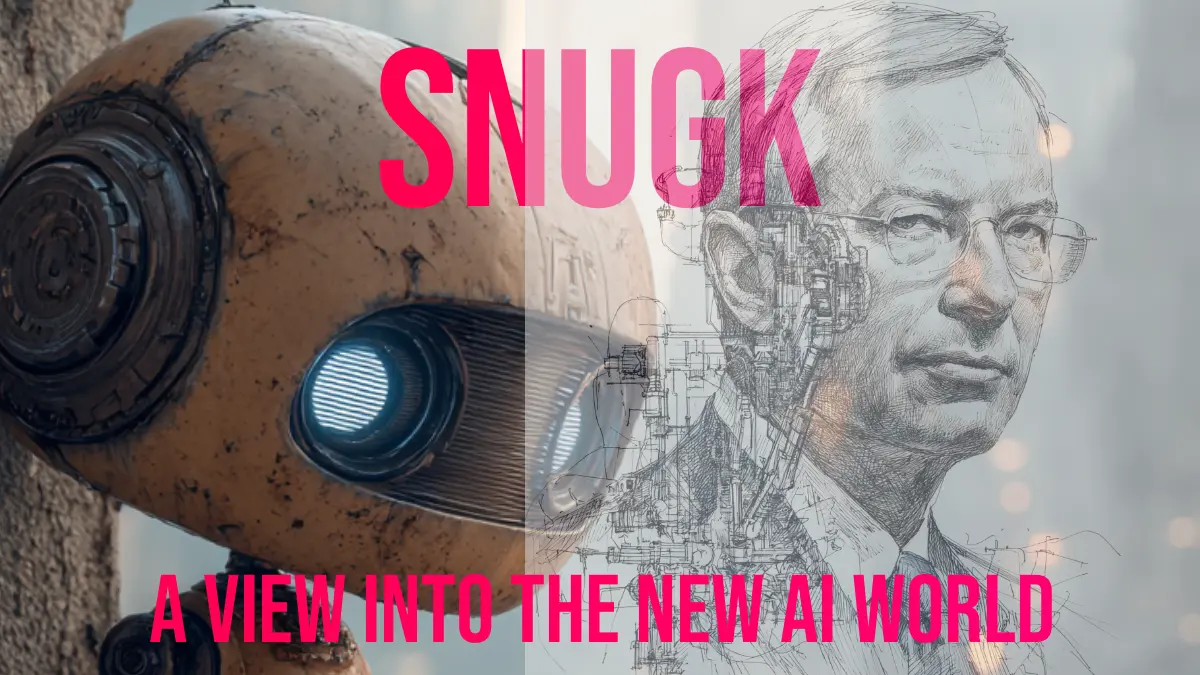Source: YouTube | All-In Podcast
In a riveting session at a recent tech summit—likely the All-In Podcast gathering—former Google CEO and Executive Chairman Eric Schmidt joined hosts Chamath Palihapitiya and David Sacks for an unfiltered discussion on the forces shaping our world. Drawing from his decades in Silicon Valley, government advisory roles, and bold investments, Schmidt painted a picture of an AI-driven future that’s both exhilarating and precarious. With anecdotes from his early days piloting private jets to observations from the front lines of Ukraine, the conversation underscores why the West must act decisively to maintain its edge.
The Underhyped AI Revolution: Agents, Intelligence, and Global Stakes
Schmidt kicked off by challenging the hype around AI, insisting it’s actually underhyped. “We’re soon going to be able to have computers running on their own deciding what they want to do,” he said, envisioning a new era of non-human intelligence with reasoning skills surpassing our own. But this isn’t just about sci-fi dreams—it’s a geopolitical imperative. Schmidt, fresh from a trip to China, revealed how U.S. chip export restrictions have forced Beijing to pivot from chasing “crazy AGI strategies” to dominating practical applications like consumer apps and robotics.
China’s playbook? Leverage open-source models and vast work ethics to flood markets, much like their electric vehicle success. “They’re attempting to do in robots what they’ve successfully done with electric vehicles,” Schmidt noted. Meanwhile, the U.S. risks ceding ground if it sticks to closed-source AI, allowing Chinese models to proliferate via initiatives like the Belt and Road. Schmidt advocates for Western-led open weights to embed democratic values in global AI, citing promising steps from OpenAI and Meta—though he admits execution hiccups, like Meta’s recent reformulation under new leadership.
This competition demands trade-offs. Schmidt doesn’t mince words on work-life balance: In tech, remote work stifles the mentorship young talent needs. “Think about a twenty-something who has to learn how the world works,” he urged, contrasting Silicon Valley’s flexibility with China’s grueling “996” schedules (9 a.m. to 9 p.m., six days a week). His solution? Bring teams back to the office, as he did at Google, to fuel innovation against relentless rivals.
Rockets, Drones, and the New Frontiers of Innovation
Shifting gears, Schmidt shared his passion for space, recounting his early investment in Relativity Space—a bold challenger to SpaceX in low-Earth orbit satellites. “Rockets are really cool and they’re really hard,” he explained, debunking the myth of their maturity. With only 2% of a rocket’s weight as payload and 80% as propellant, after six decades of physics, there’s massive room for disruption. As an investor in ventures like Swarm and Starlink, Schmidt sees space as a chaotic American strength: deep capital markets fueling entrepreneurs to launch the future.
But innovation isn’t confined to orbit—it’s reshaping warfare. Drawing from his top-secret Pentagon work and Ukraine visits, Schmidt described a “spectacular success” in automation: a nation without a navy or air force holding off a superpower through drones. “Real war is much worse than the worst movies,” he somberly reflected, emphasizing mobility over fixed infrastructure. Tanks, costing $30 million each, are obsolete against $5,000 drones with a “kill ratio” that flips economics.
The evolution? Drones as the new rifles, escalating to drone-vs-drone battles powered by AI reinforcement learning. In a million-drone showdown, unpredictable plans create deterrence akin to mutually assured destruction. “You can’t count what the other side is planning,” Schmidt said, arguing this could end wars by making them lose-lose propositions. Humans will still cross lines post-drone waves, but advantages like cheap stockpiling of algorithms and synthetic training data tilt toward agile innovators like Ukraine, who’ve used U.S. uncrewed surface vessels to secure vital grain exports.
AGI, Society, and the Imperative for American Exceptionalism
On artificial general intelligence (AGI), Schmidt tempers the panic. The “San Francisco narrative” of superintelligence in three years? Overblown. True AGI—systems setting their own objectives via analogy and non-stationary math proofs—may take six to seven years. For now, AI is “middle-to-middle,” synergistic with humans who handle prompting and iteration. “Instead of AI replacing all of us, [it] will be very helpful,” he predicted, from relationship advice to scientific discovery.
Yet broader threats loom. Declining birth rates—1.0 in China, 0.78 in Korea—signal societal shrinkage, worse than any business revenue dip. “We as humans are collectively choosing to depopulate,” Schmidt warned, advocating immigration as a fix while upholding American exceptionalism. Our chaotic, clever ecosystem—universities, entrepreneurs, deep markets—must counter internal erosions and external tyrannies, echoing World War II’s fight for democracy.
As Schmidt wrapped up, his message was clear: “I want America to win.” By stoking innovation in AI, space, and defense, the next generation can inherit the American dream. In an era of converging technologies, his worldview isn’t just tech talk—it’s a blueprint for survival.
